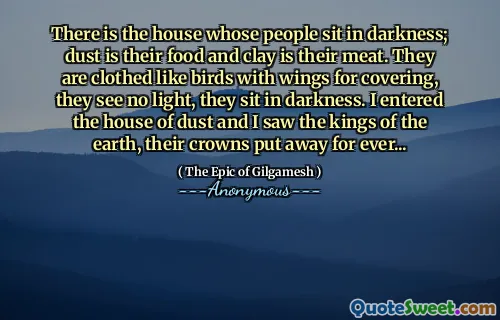The Epic of Gilgamesh is an ancient Mesopotamian poem that follows the heroic journey of Gilgamesh, the king of Uruk, as he seeks immortality. The narrative showcases his journey alongside his close companion, Enkidu, who is created by the gods to temper Gilgamesh's oppressive reign. The friendship between Gilgamesh and Enkidu is central to the story, highlighting themes of companionship and the human condition.
After Enkidu's untimely death, Gilgamesh is overcome with grief and embarks on a quest for eternal life, illustrating humanity’s struggle against mortality. His travels introduce him to various characters and myths, including Utnapishtim, who survived a great flood and holds the secret to immortality. Through these encounters, Gilgamesh learns profound lessons about life, death, and the legacy one leaves behind.
The poem concludes with Gilgamesh's acceptance of his human limitations, emphasizing that true immortality lies in the deeds one accomplishes and the memories one creates. The Epic of Gilgamesh not only provides insight into ancient Mesopotamian culture but also explores timeless themes of friendship, loss, and the quest for understanding one’s place in the universe.
More »
Today Birthdays
1948 -
Ruth Reichl
1933 -
Susan Sontag
1980 -
Lin-Manuel Miranda
1970 -
Garth Ennis
1947 -
Laura Schlessinger
1968 -
Rebecca Stead
1974 -
Kate Moss
1749 -
Vittorio Alfieri
1950 -
Debbie Allen
1968 -
Stephan Pastis
1907 -
Paul Nitze
1828 -
Karl G. Maeser
1944 -
Jill Tarter
1912 -
Nigel Dennis
1910 -
Dizzy Dean
1959 -
Sade Adu
1943 -
Brian Ferneyhough
1979 -
Aaliyah
1982 -
Birgitte Hjort Sorensen
1987 -
Jake Epstein
1988 -
FKA twigs
1946 -
Kabir Bedi
1958 -
Anatoli Boukreev
1901 -
Laura Riding
1917 -
Carl Karcher
1935 -
A. J. Foyt
1942 -
Barbara Lynn
1969 -
Alexander Acosta
